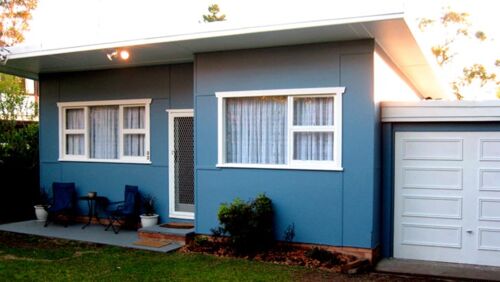Home improvements: should you move or renovate?
By Pam Walkley
At some stage most of us will be faced with the dilemma that our home no longer suits our requirements.
The solution is to either move or improve. If you are not in love with your home or area, you may opt for moving without comparing the costs of the two options. But if you like where you live, it's certainly worth exploring the renovation option.
Often the problem is you don't have enough space, so upgrading will only work if you can make your home bigger. But sometimes it's not that you don't have adequate space, it's just that it's not organised to suit your needs. Either way, before you renovate you will need to check with the local council about what you can do.
Upgrading avoids the hefty buying and selling costs associated with moving. These include marketing to sell your existing property, stamp duty on your new property and other incidental expenses, such as removalists and building and pest inspections.
Depending on the price of the properties, these can easily add up to around $50,000, which could be used towards your renovation if you stay put.
But you can easily blow that $50,000, or much more, if you do not carefully plan your remake, set a budget and stick to it.
All of us have heard horror stories of renovations that have cost far more than expected, taken much longer than planned and not solved the owner's problems.
Moving is usually simpler, because all you have to do is arrange your finances and get a removalist. You do not have to live with the disruption that building work can cause, either amid the dust or in temporary accommodation, which can be expensive. And you will know what your financial outlays are in advance, so there are no risks of budget blowouts.
But, as mentioned, the big negative is the cost, in particular stamp duty, which ranges from $10,000 in Queensland to $24,900 in South Australia (including transfer cost) on a $500,000 home, plus the selling costs, which could add another $15,000 to $20,000 on a $500,000 home.
Renovating can be satisfying, especially if you can create your dream home in an area you like. It can also add value to your home. The aim is for the increase to be more than the cost. Some experienced renovators say you should aim for a $2 return on every $1 spent.
Don't skimp on the planning; it's usually money well spent and for most it's well worth hiring an architect or design professional. There is no point in increasing the space unless the way it suits your requirements is well thought out. Adding a granny flat to an existing home may be the solution. It could be used by teenage children, as an office or as a place for guests. And later, if your accommodation requirements change again, it could provide an income.
These secondary dwellings have become relatively easy to develop because of a relaxation in planning rules, but they vary from state to state and council to council, so you will need to check. For example, in NSW the main qualifications are that the property has to be in a residential zone and with a land area of at least 450sqm and a 12 metre frontage.
A number of companies specialise in these and you can negotiate a specific price, usually at a considerably lower cost per square metre than a renovation.
Saving tips
Did you resolve to save money and better manage your finances this year? It's a resolution worth sticking to. Not all savings accounts are created equal, so understanding what your goal is and comparing account features could help you get there faster.
Some accounts promote good saving behaviour by rewarding fewer transactions, but check if the conditions for earning the bonus interest are realistic for you. While some online savings accounts offer higher interest rates and more flexibility, they also require more discipline to avoid dipping into your savings.
If you have a lump sum and a set a time frame for savings, then a term deposit may be an effective option.
It is important to ensure your account offers long term value, and don't be fooled by higher introductory rates that revert to a lower rate after a "honeymoon" period.
Get stories like this in our newsletters.



